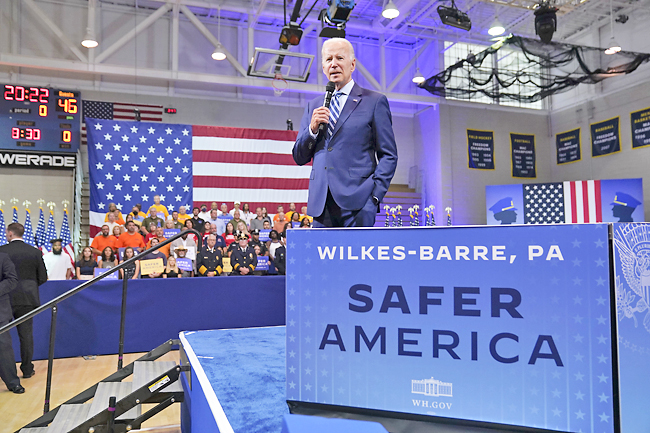WASHINGTON (AFP) – United States (US) President Joe Biden faced intense criticism for the chaotic withdrawal from Afghanistan but one year later both he and the US have largely turned the page, even as the war-ravaged country still faces mounting challenges.
Biden put out a written statement to mourn 13 US soldiers killed on August 26, 2021 in a bombing outside the Kabul airport but otherwise has stayed low-key on the anniversary of the end of America’s longest war, instead holding events on gun violence and democracy at home.
In a message to the armed forces, Defence Secretary Lloyd Austin paid tribute to the 2,461 US troops who died in the war and hailed Americans’ efforts to build “a brighter future for the Afghan people” – now once again living under Taleban militants.
“As our country looks back on two decades of combat in Afghanistan, I understand that many people have hard questions about the costs of the war and what their sacrifices meant,” said Austin, who led forces early in the war.
“These are important discussions, and I hope we will keep having them with thoughtfulness and respect.”

Biden was a longstanding critic of the Afghanistan war, believing ordinary Americans had little at stake in a grinding conflict he saw as a costly distraction from other priorities.
As Kabul fell, with the government crumbling within days despite USD2 trillion pumped into Afghanistan over two decades, Biden was adamant he would not back down.
One year later, Biden appears to have been right, at least in the narrow political sense.
Afghanistan figures nowhere among top priorities for Americans and a new Gallup poll found that 50 per cent of them believe the entire war was a mistake, compared with nearly universal support after the September 11, 2001 attacks prompted the invasion that toppled the Taleban.
“It’s very easy to poke holes in the decision to leave without providing viable alternatives in good faith,” said Adam Weinstein, a research fellow at the Quincy Institute for Responsible Statecraft, which advocates military restraint.
“DC is its own echo chamber in which a few people are discussing it but for the majority of Americans, it’s not an anniversary that matters to them,” he said.
“They’re worried about inflation, student debt, the divisions that exist in our country and so forth. They’re not thinking about the one-year anniversary of a war that most of the country had no stake in,” he added.



















































